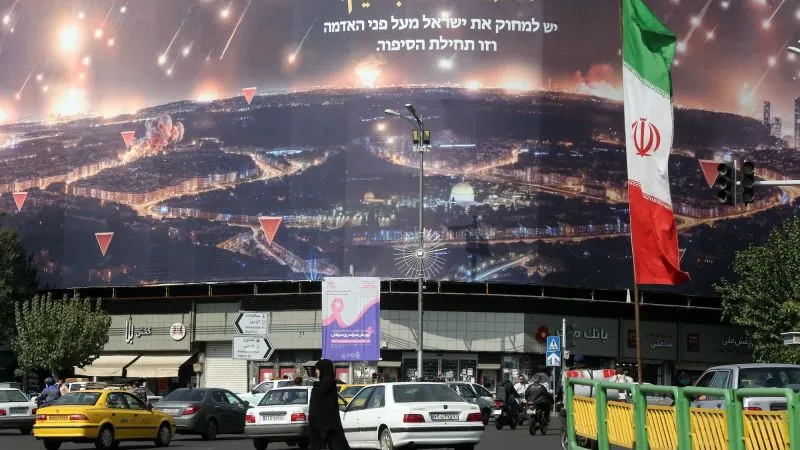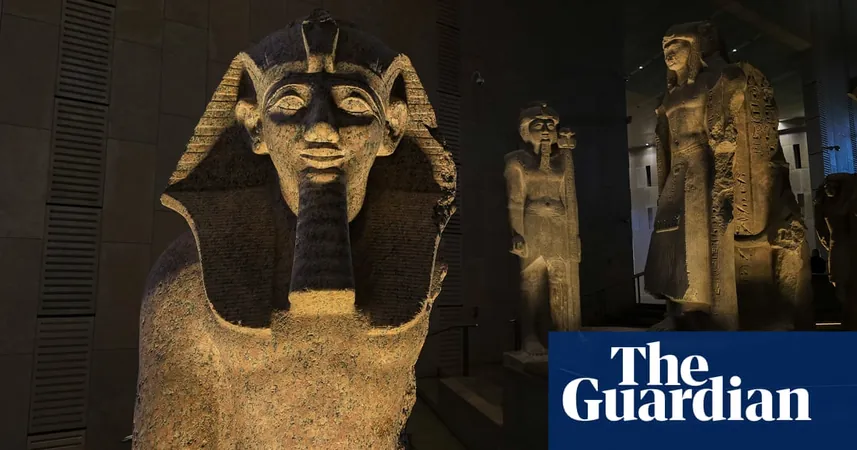
Tensions Escalate: Iran's Urgent Diplomatic Moves Amidst Threat of Israeli Retaliation
2024-10-12
Author: Lok
Iran's Diplomatic Efforts
As fears mount in Tehran, Iran's government is desperately seeking diplomatic channels to lessen the potential fallout from Israel’s impending response to a missile attack Iran conducted earlier this month. Sources close to the situation revealed that Iranian officials are reaching out to their Middle Eastern neighbors in a bid to mitigate the scale of retaliation from Israel, particularly aimed at avoiding strikes on critical Iranian infrastructure, including nuclear sites and oil facilities.
U.S. Involvement and Regional Tensions
The anxiety in Iran is palpable, largely fueled by uncertainty regarding U.S. influence over Israel. Recently, the U.S. has been in talks with Israeli officials about how to address the consequences of the October 1 missile strike, with President Joe Biden explicitly urging Prime Minister Benjamin Netanyahu for a 'proportional' response that would avoid further escalation. This marks a significant shift, as the U.S. is expressing an urgency to prevent conflict from spiraling out of control—an outcome that could involve them directly.
Hezbollah's Situation and Gulf Allies' Concerns
Tensions have only intensified in the last few weeks as Hezbollah, Iran's paramount military ally in the region, has faced debilitating losses due to Israeli military actions. The Biden administration's concern is mirrored by Gulf allies, such as the United Arab Emirates, Bahrain, and Qatar, who have warned that an attack on Iran's oil facilities could spark not just an environmental disaster but also economic turmoil across the region.
Israel's Military Preparedness
Historically, Israel has been vigilant about Iran's nuclear ambitions, often carrying out operations to thwart them. Just two years ago, Israel conducted a military exercise simulating an attack on Iranian nuclear sites, and numerous Iranian nuclear scientists have met untimely ends under suspicious circumstances, widely attributed to Israeli espionage efforts.
Warnings from Israel
In a stern warning, Israel's Defense Minister, Yoav Gallant, signaled that any Israeli retaliation would be 'powerful, precise, and above all – surprising,' further heightening concerns about potential escalation. Alongside this, Gulf states have made it clear they won’t permit Israel to utilize their airspace for attacks against Iran, a statement echoed by Jordan, further complicating the already tense political landscape.
Backchannel Communications and Future Outlook
Despite the looming threat of war, officials from both countries have engaged in backchannel communications. Iran's Foreign Minister Abbas Araghchi suggested that Netanyahu is the only party eager for widespread conflict to maintain his position. However, Iran is seeking support from nations like Saudi Arabia to leverage their influence with the U.S. towards a diplomatic resolution.
Global Attention and Yom Kippur
In the coming days, the world is closely monitoring Israel’s actions, particularly as the nation prepares to observe Yom Kippur, a significant religious holiday characterized by solemn reflection and restraint. Despite the potential for military action, the observance indicates a temporary halt in hostilities.
Conclusion
As these complex diplomatic maneuvers unfold, the region holds its breath, bracing for the potential consequences that could reverberate worldwide. Will cooler heads prevail, or are we on the brink of a conflict that could engulf the Middle East in chaos? Keep watching as the situation develops.




 Brasil (PT)
Brasil (PT)
 Canada (EN)
Canada (EN)
 Chile (ES)
Chile (ES)
 España (ES)
España (ES)
 France (FR)
France (FR)
 Hong Kong (EN)
Hong Kong (EN)
 Italia (IT)
Italia (IT)
 日本 (JA)
日本 (JA)
 Magyarország (HU)
Magyarország (HU)
 Norge (NO)
Norge (NO)
 Polska (PL)
Polska (PL)
 Schweiz (DE)
Schweiz (DE)
 Singapore (EN)
Singapore (EN)
 Sverige (SV)
Sverige (SV)
 Suomi (FI)
Suomi (FI)
 Türkiye (TR)
Türkiye (TR)